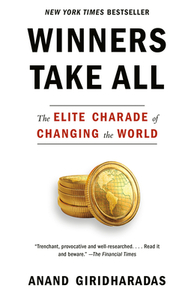Take a photo of a barcode or cover
lit_stacks's Reviews (579)
I didn't like this book as much as the first IQ novel, although I can't put my finger on exactly why. In this book, Isaiah is acting at the behest of his brother's ex-girlfriend. Joe Ide writes beautifully at times: "If there were ever two words that had no meaning they were moving on. Sorrow isn't a place you can leave behind. It’s part of you. It changes the way you see, feel, and think, and every once in a while, the pain isn’t remembered, it’s relived; the anguish as real and heartbreaking as if it was happening all over again." But then he balances it out with lines like: "Isaiah wondering why you’d wear a miniskirt if your thighs were like two Beluga whales swimming side by side."
Isaiah comes across as less intellectual in this book and more of an action hero. He gets beat up several times and is involved in at least two shootouts. It made the book compelling enough, and I was interested enough that I can't wait to see what Ide does with the third book.
Isaiah comes across as less intellectual in this book and more of an action hero. He gets beat up several times and is involved in at least two shootouts. It made the book compelling enough, and I was interested enough that I can't wait to see what Ide does with the third book.
I 100% agree with Giriharadas' thesis, that the positions of thinkers, legislators, governors, and influencers are increasingly being removed from democratic accountability and given to the plutocrats of the world. Ultimately, the solution to this is to return to the taxation schemes of yore, where the rich are taxed heavily and the government is trusted to distribute this wealth in a way that is equitable and just (or at least in a way that is democratically accountable). Giriharadas' Twitter feed is an absolute gift. Unfortunately, his book loses the point a little bit and starts to meander. But don't let the side stories distract from how good this book's message is.
Some of my favorite quotes:
"For all the wonders the Internet brings us, it is dominated by an economics of monopoly, extraction, and surveillance. Ordinary users retain little control over their personal data and the digital workplace is creeping into every corner of workers' lives. Online platforms often exploit and exacerbate existing inequalities in society, even while promising to be the great equalizers."
"And as the fallout from the crash spread, many of those cut loose had been drafted into joining a new American servant class. The precariousness at the bottom, which had shown few signs of improving several years after the meltdown, had become the fodder for a bounty of services for the affluent--and Scholz noted, for the 'channeling of wealth in fewer and fewer hands.'"
"One day Yorra was taking the subway, and she saw an ad that angered her. It was for one of the slick new digital platforms offering super-easy housecleaning. As she recalled it: 'It's an ad that's really promoting itself for its technological ease of use...Get a clean apartment with one click. And it's just got this hand that is a yellow-gloved hand. It's kind of disembodied....You're going to get this clean apartment cleaned by someone you don't see. It's all about the technology." "The technology, which had made the service easier to procure, had also changed the nature of the interaction. The on-click app obscured the messy human reality of the working people behind it, who now had less bargaining power."
"Without necessarily intending to, she was giving MarketWorld what it craved in a thinker: a way of framing a problem that made it about giving bits of power to those who lack it without taking power away from those who hold it."
"Three factors explain the decline of the public intellectual and the rise of the thought leader. One is political polarization: As American politics has grown more tribal, people have become more interested in hearing confirmation of their views, by whoever will offer it....Another factor is a generalized loss of trust in authority...Journalists have come to be less trusted than chiropractors. This loss of faith has pulled public intellectuals down a few notches and created new space for the less-credentialed idea generators to vie for attention. Inequality...has had a paradoxical effect. On one hand, extreme inequality has created 'a thirst for ideas to diagnose and treat the problems that seem to plague the United States.' On the other, it has spawned 'a new class of benefactors to fund the generation and promotion of new ideas.'"
"Walker had broken what in his circles were important taboos: Inspire the rich to do more good, but never, ever tell them to do less harm: inspire them to give back, but never, ever tell them to take less; inspire them to join the solution, but never, ever accuse them of being part of the problem."
"This is the compromise, the truce, distilled. Leave us alone in the competitive marketplace, and we will tend to you after the winnings are won. The money will be spent more wisely on you than it would be by you. You will have your chance to enjoy our wealth, in the way we think you should enjoy it. Here lay the almost constitutional principles that one day would govern MarketWorld giving: the idea that after-the-fact benevolence justifies anything-goes capitalism....and, above all, that generosity is a substitute for and a means of avoiding the necessity of a more just and equitable system and a fairer distribution of power."
"The privileged...now benefit from the further advantage of having their language and mentality dominate other domains, including the giving world. They no longer just enjoy the privilege of nice homes and cars; they also now have a say over how so many public problems are solved....In most areas of life, we have raised market-based, monetized thinking over all other disciplines and conceptions of value."
"Walker looked at America today and saw his rich friends building their metaphorical buildings with gates on the outside and discos indoors. Gated communities. Home theaters. Private schools. Private jets. Privately run public parks. Private world-saving behind the backs of those to be saved. 'Life goes more and more behind the hate... More and more of our civic activities and public activities become private activities. People chose to live in this way when they lacked faith in what lay beyond their gates--the public."
Some of my favorite quotes:
"For all the wonders the Internet brings us, it is dominated by an economics of monopoly, extraction, and surveillance. Ordinary users retain little control over their personal data and the digital workplace is creeping into every corner of workers' lives. Online platforms often exploit and exacerbate existing inequalities in society, even while promising to be the great equalizers."
"And as the fallout from the crash spread, many of those cut loose had been drafted into joining a new American servant class. The precariousness at the bottom, which had shown few signs of improving several years after the meltdown, had become the fodder for a bounty of services for the affluent--and Scholz noted, for the 'channeling of wealth in fewer and fewer hands.'"
"One day Yorra was taking the subway, and she saw an ad that angered her. It was for one of the slick new digital platforms offering super-easy housecleaning. As she recalled it: 'It's an ad that's really promoting itself for its technological ease of use...Get a clean apartment with one click. And it's just got this hand that is a yellow-gloved hand. It's kind of disembodied....You're going to get this clean apartment cleaned by someone you don't see. It's all about the technology." "The technology, which had made the service easier to procure, had also changed the nature of the interaction. The on-click app obscured the messy human reality of the working people behind it, who now had less bargaining power."
"Without necessarily intending to, she was giving MarketWorld what it craved in a thinker: a way of framing a problem that made it about giving bits of power to those who lack it without taking power away from those who hold it."
"Three factors explain the decline of the public intellectual and the rise of the thought leader. One is political polarization: As American politics has grown more tribal, people have become more interested in hearing confirmation of their views, by whoever will offer it....Another factor is a generalized loss of trust in authority...Journalists have come to be less trusted than chiropractors. This loss of faith has pulled public intellectuals down a few notches and created new space for the less-credentialed idea generators to vie for attention. Inequality...has had a paradoxical effect. On one hand, extreme inequality has created 'a thirst for ideas to diagnose and treat the problems that seem to plague the United States.' On the other, it has spawned 'a new class of benefactors to fund the generation and promotion of new ideas.'"
"Walker had broken what in his circles were important taboos: Inspire the rich to do more good, but never, ever tell them to do less harm: inspire them to give back, but never, ever tell them to take less; inspire them to join the solution, but never, ever accuse them of being part of the problem."
"This is the compromise, the truce, distilled. Leave us alone in the competitive marketplace, and we will tend to you after the winnings are won. The money will be spent more wisely on you than it would be by you. You will have your chance to enjoy our wealth, in the way we think you should enjoy it. Here lay the almost constitutional principles that one day would govern MarketWorld giving: the idea that after-the-fact benevolence justifies anything-goes capitalism....and, above all, that generosity is a substitute for and a means of avoiding the necessity of a more just and equitable system and a fairer distribution of power."
"The privileged...now benefit from the further advantage of having their language and mentality dominate other domains, including the giving world. They no longer just enjoy the privilege of nice homes and cars; they also now have a say over how so many public problems are solved....In most areas of life, we have raised market-based, monetized thinking over all other disciplines and conceptions of value."
"Walker looked at America today and saw his rich friends building their metaphorical buildings with gates on the outside and discos indoors. Gated communities. Home theaters. Private schools. Private jets. Privately run public parks. Private world-saving behind the backs of those to be saved. 'Life goes more and more behind the hate... More and more of our civic activities and public activities become private activities. People chose to live in this way when they lacked faith in what lay beyond their gates--the public."









